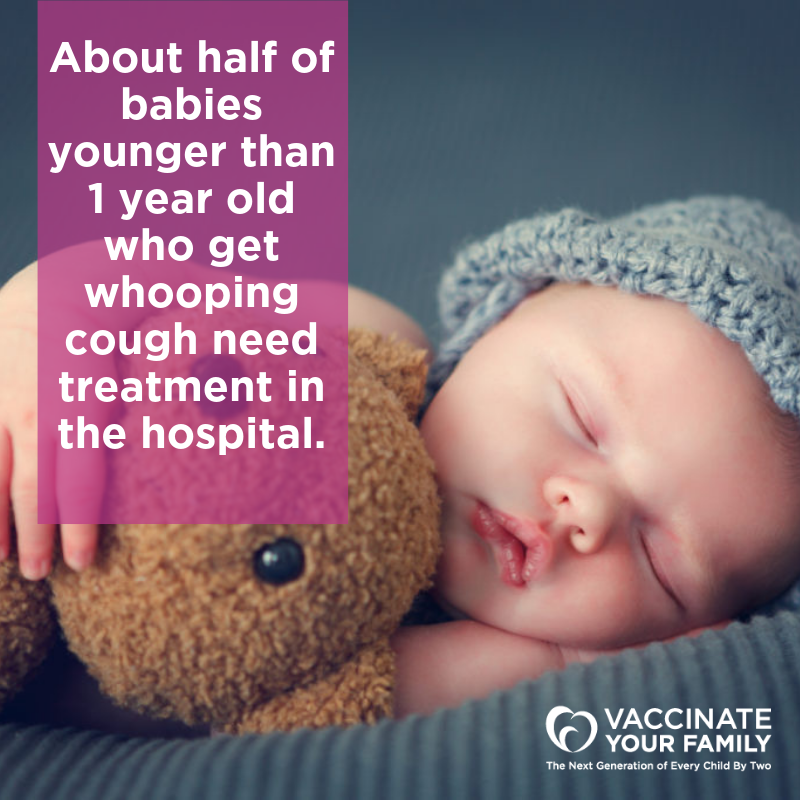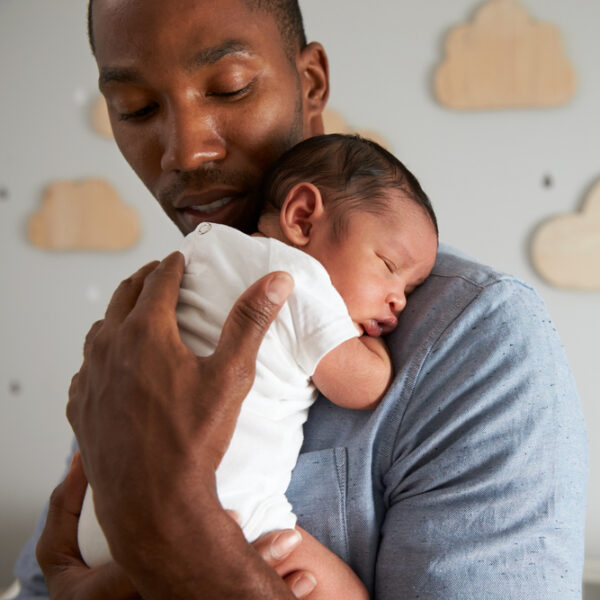Pertussis
What is Pertussis?
Pertussis, commonly known as whooping cough, is caused by the bacteria Bordetella pertussis. This is a highly contagious respiratory disease that can affect individuals of all ages. It is particularly dangerous for infants, who are at higher risk of complications. Cases of whooping cough are on the rise in the U.S., a trend that is expected to continue as vaccination rates have declined.
Vaccination is the most effective way to protect yourself, your family, and those around you. By staying up to date with vaccinations, you can help reduce the spread of this serious illness.
On this page, you can explore how whooping cough spreads, who is at risk, what the symptoms are, and how to prevent whooping cough.
Pertussis is a highly contagious respiratory disease that can affect individuals of all ages.
How is whooping cough spread?
Whooping cough spreads easily through coughing or sneezing or by just sharing breathing space.
Since the symptoms of whooping cough can vary, some people with whooping cough may only have a mild cough and they can end up spreading it to babies they are in close contact with. In fact, most unvaccinated children living with a family member who has whooping cough will get the disease.
Whooping cough is still common in the United States, and outbreaks still occur, putting children at great risk.

Anyone can contract whooping cough, but babies under six months of age are especially at high risk for complications, even if they are otherwise healthy. These infants are too young to be vaccinated themselves, so they depend on antibodies passed from their mother through vaccination during pregnancy—if she was vaccinated.
About 7 in 10 deaths from whooping cough are among babies younger than 2 months old. The younger the baby is when they get whooping cough, the more likely they will need to be treated in a hospital.
Pertussis can be deadly.
According to the CDC, there are about 15,000 to 40,000 cases of whooping cough and up to 20 deaths each year in the U.S.
What are the symptoms of whooping cough?
In many children, whooping cough is a severe hacking cough followed by a high-pitched intake of breath that sounds like a “whoop.” Hear the “whooping” sound here.
Pertussis begins with mild symptoms that often resemble a common cold. These early signs typically appear 5 days to 3 weeks after exposure to the bacteria. As the illness progresses, symptoms become more severe. Thick mucus accumulates inside the airways causing uncontrollable, severe coughing.

Symptoms in Infants (under 1 year old):
- Some babies may not cough at all but instead have trouble breathing or experience episodes where they stop breathing (apnea). These can be life-threatening.
Symptoms in Children:
- Severe coughing fits: These can be violent and uncontrollable, often causing the person to gasp for air, which produces the characteristic “whooping” sound.
- Whooping sound: After a coughing fit, the intake of breath may produce a high-pitched “whoop.”
- Vomiting: Coughing fits can trigger vomiting.
- Difficulty breathing: Breathing may become labored, and the child may struggle to catch their breath.
- Cyanosis: The face may turn red or even blue due to a lack of oxygen.
- Broken ribs: Intense coughing can cause injury, including rib fractures.
- Difficulty with eating, drinking, or sleeping: Severe coughing can interfere with normal daily activities.
Symptoms in Older Children, Teens, and Adults:
- Coughing spells may last for weeks or even months.
- The whooping sound may be absent, particularly in individuals who have been vaccinated or in those who are older.
- The illness is generally less severe in vaccinated individuals.
- Many adults, teens, and preteens may have mild or atypical symptoms and may not recognize they have pertussis.
What should I do if my child or I have been exposed to whooping cough?
Talk to a healthcare provider about preventive antibiotics that can help prevent you and/or your child from getting sick.
How can I prevent whooping cough?
Vaccination is the best way to protect people of all ages, especially infants and young children, from whooping cough. The pertussis vaccine is combined with vaccines that protect against diphtheria and tetanus. For babies and young children, this vaccine is called DTaP. For preteens, teens, adults, and pregnant women, the vaccine is called Tdap.
Ensure that all family members, especially those who are pregnant, infants, and caregivers, are up to date on their pertussis vaccinations. The Tdap vaccine is recommended for adults and adolescents beginning at age 11. The DTaP vaccine is given to infants and young children in 5 doses at age: 2 months, 4 months, 6 months, 15–18 months, and 4–6 years.
The pertussis vaccine is combined with vaccines that protect against diphtheria and tetanus.

Babies and Children
For the best protection against whooping cough, your child needs all 5 recommended doses of the DTaP vaccine. Your child should receive doses at:
- 2 months
- 4 months
- 6 months
- Between 15 and 18 months
- Between 4 and 6 years

Preteens and Teens
The Tdap vaccine is the booster shot that helps protect preteens and teens from tetanus, diphtheria, and pertussis. All preteens are recommended to receive one dose of Tdap when they are 11–12 years old. Teens who did not get the Tdap vaccine at that age should get it as soon as possible. Tdap is especially important for anyone who is in close contact with a baby younger than 12 months of age, since infants and young children are at higher risk for serious whooping cough complications.

Adults
All adults (19 years and older) who have not yet received one dose of Tdap as a preteen, teen, or adult, need to get a Tdap vaccine, which protects against tetanus, diphtheria and pertussis. This vaccine will not only protect you from these diseases but will also help protect those around you from getting sick. This is especially important, if you are planning to be around any babies, all of whom are at high risk of serious complications from whooping cough.
After that, adults need a Td or Tdap vaccine booster shot every 10 years.
What if I cannot remember if I have been vaccinated against whooping cough?
If you are unable to recall if you have had a Tdap booster, talk to your healthcare provider about getting a Tdap booster.

Pregnancy
All pregnant women should get a Tdap vaccine during their 3rd trimester to protect both themselves and their babies from whooping cough. The CDC recommends getting the Tdap shot between the 27th and 36th week of every pregnancy, preferably during the early part of this period. This recommendation is supported by the American College of Obstetricians and Gynecologists (ACOG), the American College of Nurse Midwives (ACNM), the American Association of Family Physicians (AAFP), and the American Association of Women’s Health, Obstetric and Neonatal Nurses (AWHONN).
When a pregnant woman gets a whooping cough vaccine, her body creates protective antibodies and passes some of them to her baby before birth. These antibodies will provide the baby with short-term, early protection against whooping cough and its serious complications. This is very important since infants are too young to be protected by their own whooping cough vaccination series, which doesn’t start until 2 months old.
CDC Recommended Vaccination Schedules
To ensure that your entire family is up to date on their vaccines, check out the following CDC recommended immunization schedules and talk to your healthcare provider.
Even if you’ve been vaccinated in the past, boosters are important to maintain protection. Pregnant women should receive the Tdap vaccine in their third trimester during each pregnancy, and all adults should receive a Tdap vaccine every ten years.
Studies have shown that Tdap vaccination during pregnancy is safe and effective for pregnant women and their babies.
Learn more about vaccines for pregnant women and how they help protect both mom and baby in our Pregnancy section.
When you get a Tdap vaccine during your pregnancy, you will have antibodies in your breast milk that you can share with your baby through breastfeeding. However, your baby will not get protective antibodies immediately if you wait to get the Tdap vaccine until after delivering your baby. This is because it takes about 2 weeks after getting vaccinated for your body to create antibodies. Learn more about the benefits of breastfeeding.


